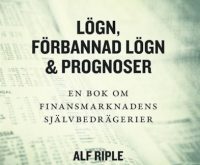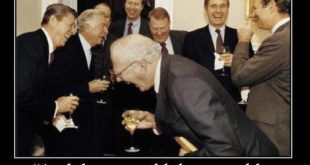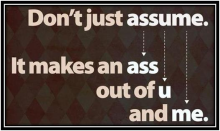Nationalekonomer hävdar ofta — vanligtvis med hänvisning till Milton Friedman och hans metodologiska individualism — att det inte gör så mycket om de antaganden som deras modeller bygger på är realistiska eller ej. Vad som betyder något är om de prognoser som modellerna resulterar i visar sig vara riktiga eller ej. Om det verkligen är så, är den enda slutsats vi kan dra att dessa modeller och prognoser hör hemma i papperskorgen. För oj vad fel de har haft! Riksbanken har sedan...
Read More »A different way to solve quadratic equations
A different way to solve quadratic equations .[embedded content] This one is for Linnea, my youngest daughter, who has now begun studying mathematics at my university ?
Read More »Why exam schools may reduce achievement
Why exam schools may reduce achievement .[embedded content]
Read More »Die Linke Zerstörer Sahra Wagenknecht
Die Linke Zerstörer Sahra Wagenknecht .[embedded content]
Read More »Women’s fight for freedom
.[embedded content] Courage is a capability to confront fear, as when in front of the powerful and mighty, not to step back, but to stand up for one’s rights not to be humiliated or abused in any way by the rich and powerful. Courage is to do the right thing in spite of danger and fear. To keep on even if opportunities to turn back are given. Like in the great stories. The ones where people have lots of chances of turning back — but don’t. Dignity, a better life, or justice...
Read More »Liz Truss’ trickle-down economics
Liz Truss’ trickle-down economics U.K. Prime Minister Liz Truss has said she’s ready to make “unpopular decisions” such as tax cuts and boosting bonuses for wealthy bankers to grow the economy, even though they obviously benefit the wealthiest more than the poor … Truss and her conservative government are to give U.K. corporations and shareholders a gift. The only trickle-down to workers to be going on is probably best described in the picture below …...
Read More »Science — the need for causal explanation
Science — the need for causal explanation Many journal editors request authors to avoid causal language, and many observational researchers, trained in a scientific environment that frowns upon causality claims, spontaneously refrain from mentioning the C-word (“causal”) in their work … The proscription against the C-word is harmful to science because causal inference is a core task of science, regardless of whether the study is randomized or nonrandomized....
Read More »Statistical models and the assumptions on which they build
Statistical models and the assumptions on which they build Every method of statistical inference depends on a complex web of assumptions about how data were collected and analyzed, and how the analysis results were selected for presentation. The full set of assumptions is embodied in a statistical model that underpins the method … Many problems arise however because this statistical model often incorporates unrealistic or at best unjustified assumptions …...
Read More »Rethinking economics …
Support Vector Machines (student stuff)
Support Vector Machines (student stuff) .[embedded content]
Read More » Lars P. Syll
Lars P. Syll



